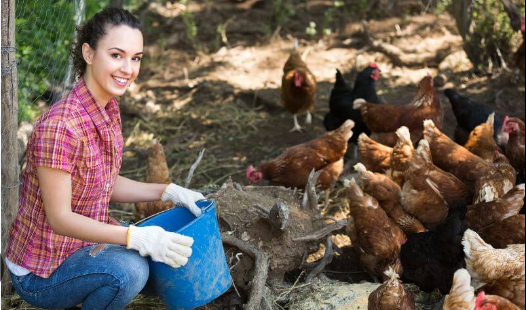Farm Workers Jobs in USA
Introduction
Farm Workers Jobs in USA . Farm worker jobs in the USA play a crucial role in sustaining the nation’s agricultural industry. From planting and harvesting crops to caring for livestock, farm workers are essential for ensuring a steady food supply for the population. In this article, we’ll explore the various aspects of farm worker jobs, including the types of roles available, qualifications required, challenges faced, salary expectations, and opportunities for advancement.
Types of Farm Worker Jobs
Field Workers
Field workers are responsible for tasks such as planting, weeding, and harvesting crops. They work directly in the fields, often enduring long hours of physical labor.
Livestock Workers
Livestock workers care for animals on farms, including feeding, watering, and cleaning enclosures. They may also assist with breeding and medical treatments for the animals.
Crop Workers
Crop workers specialize in tending to specific types of crops, such as fruits, vegetables, or grains. Their duties include monitoring plant health, applying fertilizers and pesticides, and harvesting ripe produce.
Equipment Operators
Equipment operators are skilled in operating farm machinery, such as tractors, combines, and irrigation systems. They play a vital role in maximizing efficiency during planting and harvesting seasons.
Qualifications and Skills Required
Physical Fitness
Farm work often requires lifting heavy objects, bending, kneeling, and standing for extended periods. Physical fitness is essential to withstand the demands of the job.
Knowledge of Farm Equipment
Farm workers should be familiar with various types of machinery and equipment used in agricultural settings. This includes understanding how to safely operate and maintain these tools.
Ability to Work in Various Weather Conditions
Farm work is performed outdoors and is subject to weather fluctuations. Workers must be prepared to work in extreme temperatures, rain, and other adverse conditions.
Communication Skills
Effective communication is essential for coordinating tasks with other farm workers, supervisors, and livestock handlers. Clear communication helps ensure that operations run smoothly and efficiently.
Job Responsibilities
Planting and Harvesting Crops
Farm workers participate in planting seeds, transplanting seedlings, and harvesting mature crops at the appropriate times to ensure maximum yield.
Feeding and Caring for Livestock
Livestock workers feed animals according to specific dietary requirements, provide clean water, and monitor their health for signs of illness or distress.
Operating Machinery
Equipment operators are responsible for safely operating tractors, harvesters, and other machinery to perform tasks such as plowing fields, seeding, and baling hay.
Maintaining Farm Infrastructure
Farm workers contribute to the maintenance of farm buildings, fences, and irrigation systems to ensure the efficient operation of the farm.
Challenges Faced by Farm Workers
Long Hours and Hard Labor
Farm work often involves long hours, especially during planting and harvesting seasons, and requires physical stamina to perform strenuous tasks.
Exposure to Pesticides and Chemicals
Farm workers may be exposed to pesticides and other chemicals used in agricultural practices, which can pose health risks without proper protective measures.
Seasonal Nature of Work
Many farm worker jobs are seasonal, resulting in uncertain employment prospects during off-peak seasons and periods of inclement weather.
Limited Access to Healthcare and Benefits
Some farm workers may lack access to healthcare benefits and face challenges in accessing affordable medical care and insurance coverage.
Salary and Benefits
The average salary for farm workers in the USA varies depending on factors such as experience, location, and type of farming operation. Benefits may include housing, meals, and access to farm-produced goods.
Opportunities for Advancement
Farm workers can advance their careers through various avenues, including:
Supervisory Positions
Experienced farm workers may transition into supervisory roles, overseeing teams of workers and managing day-to-day operations on the farm.
Specialized Skills Training
Training programs and certifications are available for farm workers seeking to develop specialized skills in areas such as organic farming, sustainable agriculture, or livestock management.
Education Programs
Some farm workers pursue further education in agricultural studies or related fields to expand their knowledge and career opportunities in the agricultural industry.
Demand for Farm Workers
The demand for farm workers is influenced by factors such as population growth, consumer demand for agricultural products, and advancements in farming technology. Despite automation in some areas, human labor remains essential for many farming tasks.
How to Find Farm Worker Jobs
Farm worker jobs can be found through various channels, including:
Job Search Websites
Websites dedicated to agricultural job listings provide opportunities for farm workers to browse job openings and submit applications online.
Agricultural Agencies and Organizations
Government agencies and agricultural organizations often provide resources and support for individuals seeking employment in the farming sector.
Local Farming Communities
Networking within local farming communities and attending agricultural events can help farm workers connect with potential employers and access job opportunities.
Conclusion
Farm worker jobs in the USA offer rewarding opportunities for individuals interested in working in the agricultural industry. With a range of roles available, from field work to equipment operation, farm workers play a vital role in sustaining food production and ensuring the nation’s food
